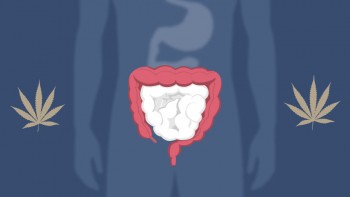
NIDA’s Namechange and what it means for the Future of Drugs?
It's no surprise that I'm not the biggest fan of the Biden Administration, given their political pandering and "bread and circus" tactics over the past four years. They had the opportunity to legalize cannabis yet stalled on every front—instead, they engaged in political theater by "pardoning" certain federal cannabis possession cases, which led to zero people being freed from prison.
However, there is a subtle move by the administration that might have profound impacts on drug research in the years to come. What am I referring to? The subtle name change of NIDA, the National Institute on Drug Abuse, to the National Institute on Drugs and Addiction.
NIDA, a part of the National Institutes of Health (NIH), has long been at the forefront of the nation's "War on Drugs," primarily focusing on the study of substance abuse and addiction from a criminal justice perspective. Its name, which has remained unchanged since its inception in 1973, reflects the stigmatized view of drugs as inherently abusive and detrimental to society.
However, the proposed name change signals a potential shift in perspective, acknowledging that not all drugs are inherently abusive, and that addiction is a complex issue that warrants a more nuanced and scientific approach. This subtle rebranding could pave the way for more comprehensive and unbiased research into the potential therapeutic benefits of various substances, including psychedelics, cannabis, and harm reduction strategies.
In this article, we'll explore the history and role of NIDA, the implications of its name change, and the potential impact it could have on shaping the future of drug policy and research in the United States.
A Brief History of NIDA and how it helped maintain prohibition for so long!
The National Institute on Drug Abuse (NIDA) was established in 1973, during the height of the "War on Drugs" era. Its mission was clear: to lead the nation's research efforts in studying the causes, consequences, and prevention of drug abuse and addiction. However, from its inception, NIDA's approach has been heavily skewed toward criminalizing drug use and perpetuating the narrative of drugs as inherently harmful and dangerous.
Throughout its history, NIDA has played a crucial role in shaping the nation's drug policies and maintaining the prohibition of various substances. By primarily focusing its research efforts on the negative aspects of drug use, NIDA has contributed to the stigmatization and criminalization of drugs, rather than exploring their potential therapeutic benefits.
Between 2000 and 2020, a staggering 95% of all research conducted by NIDA on cannabis and other drugs was centered around their perceived "harms," while virtually no studies were dedicated to investigating their potential medical applications. This imbalanced approach to research has created a distorted perception of drugs, one that often ignores or downplays their potential therapeutic value.
By consistently portraying drugs as inherently harmful and addictive, NIDA's research has been used to justify the ongoing prohibition of various substances, even those with well-documented medical benefits. This skewed narrative has kept potentially life-saving substances out of reach for millions of people suffering from various medical conditions.
Furthermore, NIDA's emphasis on the criminal justice aspect of drug use has contributed to the disproportionate criminalization and mass incarceration of marginalized communities, particularly people of color. This approach has perpetuated the cycle of stigma, discrimination, and societal harm associated with drug use, rather than treating it as a public health issue. Of course, not all scientists who work at NIDA believed in this, however, they had a mandate and did the science that favored prohibition as opposed to favoring all of humankind.
While NIDA's historical role in maintaining the prohibitionist stance on drugs is undeniable, the proposed name change to the National Institute on Drugs and Addiction could signal a shift toward a more balanced and scientific approach to drug research and policy.
A New Name, a New Mission?
The subtle name change from the National Institute on Drug Abuse to the National Institute on Drugs and Addiction may seem insignificant, but it could signify a profound shift in how we approach the study and understanding of drugs and addiction.
The previous name, "Drug Abuse," carried an inherent supposition that drugs are inherently bad and that their use is always abusive. This narrow perspective failed to acknowledge the complex interplay between individual vulnerabilities, environmental factors, and the pharmacological properties of substances. By removing the loaded term "abuse," the new name recognizes that addiction is a unique experience for each individual and not necessarily a direct consequence of the drug itself.
If NIDA truly embraces this paradigm shift and treats drugs without inherent bias, it could open doors to exploring the therapeutic potential of substances previously dismissed or demonized, such as LSD, psilocybin, DMT, and others. Emerging research has already indicated that these compounds may hold promise in treating various psychological disorders, including post-traumatic stress disorder (PTSD) and chronic depression.
Psychedelics, in particular, have shown remarkable ability to disrupt deeply entrenched patterns of thought and behavior, offering a potential avenue for healing and personal growth. By studying these substances without prejudice, NIDA could unlock new, potentially less toxic modalities for addressing mental health challenges that have proven resistant to conventional treatments.
However, until there is an actual shift in the focus and priorities of NIDA's research efforts, the name change alone holds little substance. If the institute continues to allocate the vast majority of its resources to studying the "harms" of drugs, while neglecting their potential benefits, the rebranding will be little more than a cosmetic change.
True progress will require a concerted effort to reorient NIDA's mission toward a more balanced and scientifically rigorous approach, one that acknowledges the complexities of human experiences with drugs. Only then can we fully harness the potential of these substances to alleviate suffering and advance our understanding of the human mind and consciousness.
The Sticky Bottom Line
The National Institute on Drug Abuse, has played a pivotal role in perpetuating the "War on Drugs" narrative and maintaining the prohibition of various substances, including those with potential therapeutic benefits. For decades, NIDA's research efforts have been heavily skewed toward portraying drugs as inherently harmful, addictive, and devoid of any medical value, thereby justifying their criminalization.
While the Biden Administration has been a colossal disappointment on numerous fronts, the proposed name change of NIDA to the National Institute on Drugs and Addiction could be one of their few redeeming qualities. By removing the loaded term "abuse" from the institute's name, it signals a potential shift toward a more balanced and scientific approach to studying drugs and addiction.
However, it's crucial to note that government institutions move at a glacial pace, often taking years, if not decades, for substantive changes to manifest. The name change alone is unlikely to have an immediate impact on NIDA's research priorities or the nation's drug policies. It will take sustained effort and pressure from the scientific community, advocacy groups, and the public to ensure that this rebranding translates into tangible actions and a genuine reorientation of NIDA's mission.
Nonetheless, acknowledging and scrutinizing these subtle shifts in public policy is essential, as they can serve as catalysts for broader societal change. By bringing attention to the potential implications of NIDA's name change, we can begin to challenge the deeply ingrained stigma surrounding drugs and addiction, and pave the way for a more compassionate and evidence-based approach to these complex issues.
Ultimately, while the government may move at the speed of a sluggish bowel movement, it is imperative that we, as individuals and communities, embrace these shifts internally, cultivating a more nuanced understanding of drugs and their potential benefits. Only then can we create an environment conducive to genuine progress, where policies and practices are rooted in science, empathy, and a commitment to human well-being, rather than misguided ideologies or political agendas.






